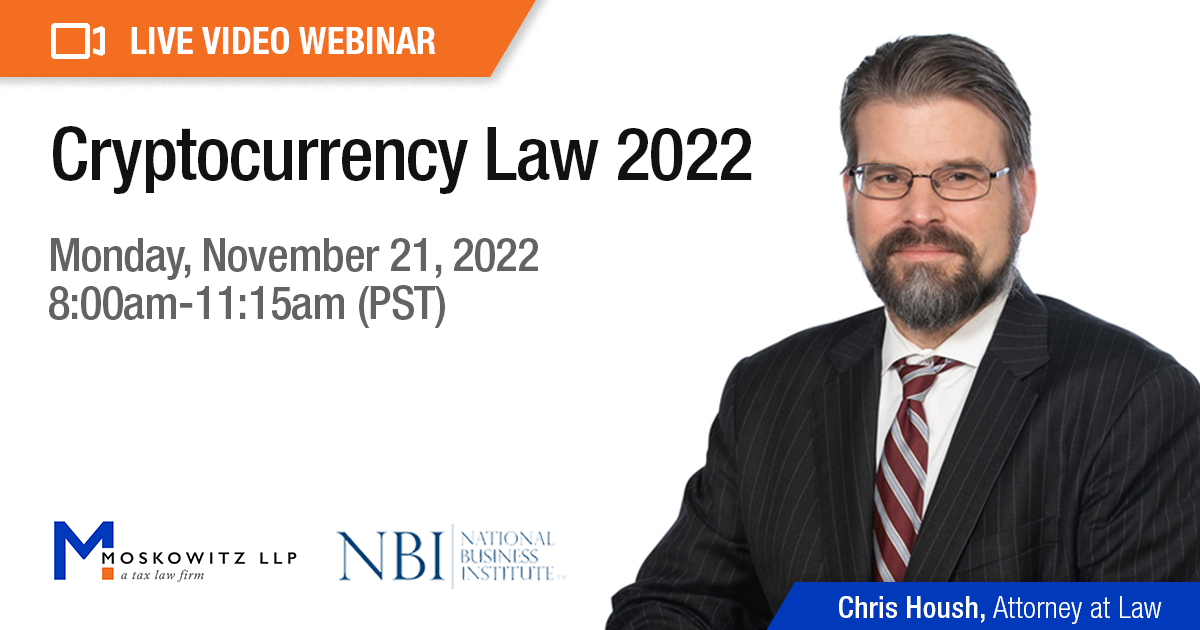
November is for being thankful, and for getting an early start on your taxes.
Not necessarily in that order.
This November, we’re writing to you on a number of important topics: how to avoid holiday gift card fraud when you’re seeking to escape supply chain issues and make sure the people you appreciate feel appreciated, for instance. We’re also giving you the lowdown about how to make sure your new hybrid or electric vehicle qualifies for a tax credit (hint: buy it before 2023. See below for why). We also want to share our participation in the global GivingTuesday charitable movement in the hopes that you might consider doing the same.
And finally, in the spirit of giving, Moskowitz encourages you to attack and conquer your 2022 tax return with a hearty reward: we’re bringing back the famed 2021 Early Bird Discount. Hire us before December 31, 2022, and you’ll receive 10% off our services–a minimum discount of $65.00.
My Best,
Steve Moskowitz
Founding Partner
Upcoming Dates
November 11, 2022 Veteran’s Day
November 24, 2022 Thanksgiving
November 25, 2022 Black Friday
November 29, 2022 Giving Tuesday
In This Issue
- 2022 Tax Preparation – It’s the perfect time to start!
- Attorney Chris Housh to Speak at Cryptocurrency Panel
- Giving Tuesday
- IRS Small Business Audit Triggers
- Buying an Electric Vehicle? Know These Tax Law Changes
- Moskowitz LLP Resources for You
2022 Tax Preparation – It’s the perfect time to start!
Our tax preparation Early Bird Discount was so popular last year that we decided to offer it again.
Here’s how to earn your 10% discount on our tax preparation services:
- Hire us before December 31, 2022 and receive a 10% discount and, if you qualify, a tax deduction for our tax preparation fees.
- Hire us before January 31, 2023 and receive a 5% discount.
- February 1st and after, no discount, but we’ll still be available to prepare your returns.
Additional information to know
A note on tax payments: We have a pay as you go tax system. If you have income from which no income tax is withheld (such as business income), you may be required to make quarterly estimated tax payments. Also, if you don’t have enough income taxes withheld from wages and pensions to cover your tax liability, you may need to make estimated tax payments.
Federal estimated taxes for individuals are paid with Form 1040-ES and are due on April 15, June 15, September 15 of the tax year involved and on January 15 of the following year. We strongly urge you to review your tax payments for tax year 2022 to ensure that you are on target to meet all tax payment obligations and can avoid a surprise tax bill when it comes time to file your tax return or file your tax extension.
If you’re not sure of how much you should pay in estimated taxes this year and you don’t want to pay the wrong amount by accident, you can choose to pay 90% of your estimated current year tax bill or 100% (or 110% depending on AGI) of your prior year tax bill. This generally avoids needing to pay an underpayment penalty.
Important Tax Deadlines and Dates for 2022
Filing Season Individual Filers – including employees, retirees, self-employed individuals, independent contractors, and gig workers
- January 16, 2023 – 4th Quarter 2022 estimated tax payment due. If you’re self-employed or have other income without any tax withholding, and you make quarterly estimated tax payments, this is the due date for your final quarterly payment for the 2022 tax year.
- April 18, 2023 – Tax day. Deadline to file your tax returns or Deadline to File Form 4868 and request an extension. The tax day deadline is the deadline to file your income tax returns. If you are unable to do so, it is also the last day to file Form 4868 requesting an extension to October 16, 2023 to file your individual income tax return. But remember, even if you choose to file an extension, you are still required to pay any taxes you may owe by the April deadline.
- April 18, 2023 – Deadline to make IRA and HSA contributions for 2022 tax year. For individual income tax return filers, this also marks the final day to make contributions to your IRA or HSA for the 2022 tax year. After this date, you generally can’t make contributions for the previous tax year.
- April 18, 2023 – First quarter 2023 estimated tax payment due.
- June 15, 2023 – Second quarter 2023 estimated tax payment due. September 15, 2023 – Third quarter 2023 estimated tax payment due.
- October 16, 2023 – Deadline to file your extended 2022 tax return. If you chose to file an extension request on your tax return, this is the due date for filing your tax return.
- December 31, 2023 – Required minimum distributions must be taken for individuals age 73 or older by the end of 2023. After taking your first RMD (for 2022) by April 1, 2023 if you turned 72 in 2022, you also need to take your 2023 RMD by the end of the year. This is also the deadline if you are otherwise required to take an RMD for 2023.
- January 15, 2024 – Fourth quarter 2023 estimated tax payment due.
Note: State Income Tax Deadlines generally follow federal deadlines but can and do vary. Be sure to check your State filing and payment requirements.
Businesses – Partnerships (including LLCs), C Corps (Form 1120), and S Corps (Form 1120S)
- January 16, 2023 – 4th Quarter 2022 estimated tax payment due
- January 31, 2023 – Employers send W-2s and 1099 forms
- March 15, 2023 – Taxes are due for some business types (partnerships, multi-member LLCs, and S-Corporations). Businesses organized as partnerships, including multi-member LLCs, and S-Corporations need to file Form 1065, or 1120S by March 15, 2023, if they are a calendar year business. If your business uses a fiscal year, you need to file your tax return by the 15th day of the third month following the close of your tax year.
- April 18, 2023 – Taxes for C-Corporations are due. Businesses organized as C-Corporations need to file form 1120 by April 18, 2023, if they are a calendar year business. If your business uses a fiscal year, you need to file your tax return by the 15th day of the third month following the close of your tax year.
- September 15, 2023 – Deadline for extended partnership and S-corporation returns
- October 16, 2023 – Deadline for extended C-corporation returns
- January 15, 2024 – Fourth quarter 2023 estimated tax payment due
The above doesn’t cover every tax deadline, merely the most important ones broadly relevant to these groups of taxpayers. For a comprehensive view of all the important tax deadlines applicable to each taxpayer, please visit IRS Publication 509.

Attorney Chris Housh to Speak at Cryptocurrency Panel
Get up to speed on the latest changes affecting your practice.
This timely course brings you up to date on critical changes shaping cryptocurrency law. From recent developments surrounding smart contracts and non-fungible tokens to current issues regarding virtual currencies in financial transactions, enhance your knowledge – register today!

Giving Tuesday
GivingTuesday was created in 2012 as a simple idea: a day that encourages people to do good. Over the past nine years, this idea has grown into a global movement that inspires hundreds of millions of people to give, collaborate, and celebrate generosity. GivingTuesday strives to build a world in which the catalytic power of generosity is at the heart of the society we build together, unlocking dignity, opportunity, and equity around the globe.
GivingTuesday’s global network collaborates year-round to inspire generosity around the world, with a common mission to build a world where generosity is part of everyday life.
The annual celebration event will take place on Tuesday, November 29, 2022. Moskowitz LLP is proud to participate in this year by making a donation to the Salvation Army.

IRS Small Business Audit Triggers
Moskowitz LLP is Ready to Defend Your Business.
The IRS is always scanning tax returns from small businesses that look unusual or out of the ordinary. Here are five areas of your business to be ready to defend should the IRS start asking you questions:
Business vs hobby.
Be ready to provide proof your business is truly a business and not a hobby. Those who fail in the eyes of the IRS can have their expense deductions severely limited, while still required to report the income. Make sure you can answer and provide documentation for these four questions:
- What is your profit motive?
- Are you an active participant in the business?
- Are you conducting the activity in a business-like manner?
- What expertise do you have in the service or products your business provides?
Reasonable shareholder salary.
S corporations are in the unique situation where some compensation is excluded from payroll taxes. Many businesses take this too far. The IRS is looking closely at businesses who avoid paying a reasonable salary in order to lower their Social Security and Medicare tax bills. When determining salaries for shareholders, consider their experience, duties, responsibilities and time devoted to the business. Once you have a picture of their ongoing contributions to the business, research comparable positions and salary ranges to pinpoint a fair salary. Save your findings and calculations as backup to provide in the event of an audit.
Contractors vs employees.
Make sure consultants and other suppliers are not employees in disguise. The IRS looks at how much control you have over the work being done – the more control you exert, the higher likelihood you may have an employee versus a contractor. Penalties can be very steep if the IRS decides your consultant is really your employee. If in doubt, ask for a review.
Meal and travel expenses.
Documentation for business meal expenses, as well as travel expenses, should include receipts, who attended the meal, and the business purpose of the meal. Bringing food in for business lunches rather than going out is a safe way to show business intent.
W-2 and 1099 forms.
Don’t forget to file all required 1099s and W-2s. Most of them are due on or before Jan. 31. The IRS is penalty crazy in this area with up to $270 per missing or incorrect form.
We handle so many tax audits that we wanted to remind you of some of the most common audit areas we see businesses facing. If you have questions regarding this or would like to discuss your business practices with us, please do not hesitate to contact us.

Buying an Electric Vehicle? Know These Tax Law Changes
There’s good and bad news if you’re in the market for an electric or plug-in hybrid electric vehicle.
The good news is that the newly enacted Inflation Reduction Act includes a wholly revamped tax credit for electric vehicles that starts in 2023 and continues through 2032.
The bad news is that the credit, now called the “clean vehicle credit,” comes with many new restrictions.
The clean vehicle credit remains at a maximum of $7,500. But beginning in 2023, to qualify for the credit
- you will need an adjusted gross income of $300,000 or less for marrieds filing jointly or $150,000 or less for singles; and
- you will need to buy an electric vehicle with a manufacturer’s suggested retail price below $80,000 for vans, SUVs, and pickup trucks, or $55,000 for other vehicles.
But that’s not all. The 2023-and-later credit includes new domestic assembly and battery sourcing requirements.
The new law reduces or eliminates the credit when the vehicle fails the battery sourcing requirements. Currently, no electric vehicle will qualify for the full $7,500 credit. Manufacturers are working feverishly to change this, but it could take a few years.
The new credit is not all bad—it eliminates the cap of 200,000 electric vehicles per manufacturer. Thus, popular electric vehicles manufactured by GM, Toyota, and Tesla can qualify for the new credit if they meet the price cap and other requirements.
And then, starting in 2024, you can qualify for a credit of up to $4,000 when purchasing a used electric vehicle from a dealer (not an individual). But income caps also will apply to this credit.
Also, starting in 2024, you’ll be able to transfer your credit to the dealer in return for a cash rebate or price reduction. This way, you can benefit from the credit immediately rather than waiting until you file your tax return.
If you are locked out of the new credit because your income is too high or you wish to purchase a too-expensive electric vehicle, consider buying a qualifying electric vehicle (assembled in North America) on or before December 31, 2022.
If you buy an electric vehicle for business use in 2023, you have a second option: the commercial clean vehicle credit.
Moskowitz LLP Resources for You
We are striving to offer you relevant and timely resources to assist you. Please check out our recent additions:
#42 | Tax Advantages of Solar Technology and IRS Scammers ft. Ali Samana & Terence Lee
#41 | Remote Work and it’s Effect on Office Space ft. Michael Cupps & Todd Rutherford
#40 | Trusts, Wills, and Amazon ft. Michael Davidson & Steven Pope
Watch: Steve’s Recent Webinars
Cryptocurrency and Taxation 2022 Update
California SALT Tax Workaround: AB150 & SB113
Tax Planning for Real Estate: Opportunity Zones
